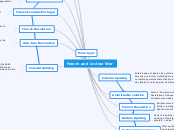da history group mancano 9 anni
410
Independence Movement
The period surrounding the French and Indian War through the early 19th century saw significant political and social upheaval across the Americas and Europe, driven by Enlightenment ideals.

da history group mancano 9 anni
410

Più simili a questo